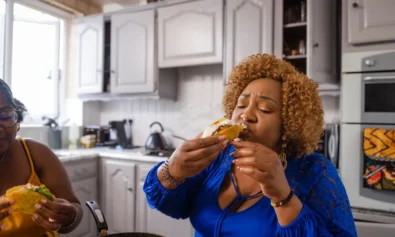If you can say yes to most of these, it’s very likely you’re in a healthy relationship.
50 Positive Characteristics of Healthy Relationships
1. You can name your partner’s best friend and state a positive quality that person has.
2. You and your partner are playful with each other.
3. You think your partner has good ideas.
4. You’d like to become more like your partner in some ways.
5. Even when you disagree, you can acknowledge your partner makes sensible points.
6. You think about each other when you’re not physically together.
7. You see your partner as trustworthy.
8. In relationship-relevant areas (such as warmth and attractiveness), you view your partner a little bit more positively than s/he views themselves or how most other people view your partner.
9. You enjoy the ways your partner has changed and grown since you met.
10. Your partner is enthusiastic when something “goes right” for you.
11. (If applicable) When you reunite at the end of the day, you say something positive before you say something negative.
12. You reminisce about positive experiences you had together in the past (e.g., fun vacations).
13. You can name one of your partner’s favorite books.
14. You know what your partner’s aspirations in life are.
15. You can recall something you did together that was new and challenging for both of you.
16. You kiss everyday.
17. You’re comfortable telling your partner about things that make you feel vulnerable (such as if you’re worried about getting laid off).
18. You have your own “love language,” e.g., pet names or special signs you give each other (such as the Obamas’ fist bump).
19. You know what your partner’s most embarrassing moment from childhood was.
20. You know what your partner’s proudest moment from childhood was.
21. You never or very rarely express contempt for your partner — roll your eyes, cuss at them, call them crazy, etc.
22. You can list some positive personality qualities your partner inherited from their parents.
23. If you have children together, you can list some positive personality qualities your partner has passed on to your children.
Read more: Alice Boyes, Ph.D Psychology Today


